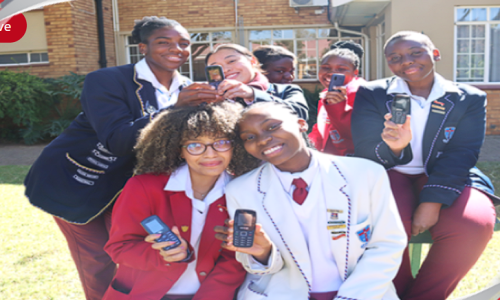Articles
More than just another #trend: Influencer marketing
-
11 months ago
To bolster South African marketers’ confidence in influencer marketing, the IAB South Africa’s Influencer Marketing Committee has taken the first steps towards best practices, standards and benchmarks for influencer marketing with the release of a Definitions Document (2021) and a white paper titled Best Practices for Influencer Marketing in South Africa that outlines best practices for the current local influencer marketing landscape.
As influencer marketing in South Africa continues to grow, marketers and brands must continue to stay updated on changes in the industry and adjust their marketing intentions accordingly.
The influencer marketing industry has grown to $21.1bn, says Influencer Marketing Hub, while influencer advertising spend in South Africa is estimated to increase by 11.6% annually (Statista).
A few months ago, the discourse around the downfall of influencers and the rise of de-influencing proliferated across global mainstream media and, ironically, on social media platforms.
However, the trend rapidly pivoted to a more enterprising solution for influencers to persuade their audiences to purchase alternative products to the ones they don’t believe are worth the money.
This shift, along with indications that consumers trust influencers over brands and social media over mainstream media, only signifies the exponential growth of the industry.
This is further expounded by the increase of influencers in niche topics — everything from mental health and literature to corporate life and political activism.
What does this mean for the South African digital media and marketing industry?
Authentic, relatable content
It’s an opportunity to redefine the relationship between influencers and brands and their agencies and tap into new audiences.
To do so, marketers must keep abreast of the evolving influencer landscape to achieve the best results for their brands and clients.
Over the last few years, a key change across social media marketing specifically is a gravitation from traditional professionally created content towards authentic, relatable content that resonates with audiences.
Yet, influencers say that unclear or incomplete briefs provided by brands and agencies and a lack of communication are key challenges to creating content that maintains a balance between influencers’ authenticity and the brands’ messaging.
Related Articles Posts
Categories
Popular Post
-
 SA’s IT spend to outpace GDP growth 1 year ago
SA’s IT spend to outpace GDP growth 1 year ago -
 Vodacom, Netstar launch free in-taxi Wi-... 1 year ago
Vodacom, Netstar launch free in-taxi Wi-... 1 year ago -
 South Africa under pressure to fill cybe... 1 year ago
South Africa under pressure to fill cybe... 1 year ago -
 Organisations with a strong employee val... 1 year ago
Organisations with a strong employee val... 1 year ago -
 Joint policy-in-action event highlights... 1 year ago
Joint policy-in-action event highlights... 1 year ago -
 Boost your digital transformation journe... 1 year ago
Boost your digital transformation journe... 1 year ago








